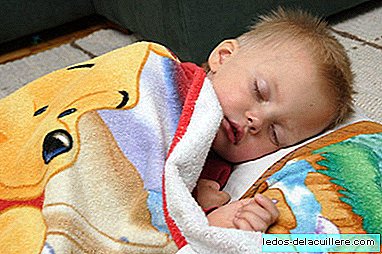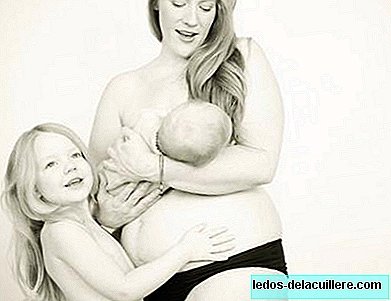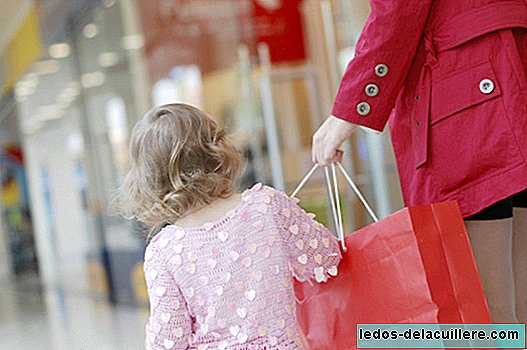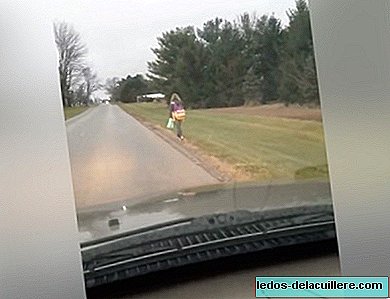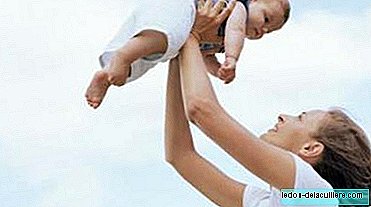
There is much talk about the sociability and socialization of children, and that usually focuses on the facet that deals with their relationships with their peers and is used as an argument in favor of early schooling. However, it seems that we forget that human beings are sociable by nature and this trend begins from birth. The sociability of babies It is something that characterizes them from the first days.
Babies are hugely sociable beings and social. The relationship with other humans, starting with mom and expanding to other people with whom they feel safe, is for them a necessity and a source of pleasure. They love to be touched, to talk to them, to take them in their arms and to smile at them. In reality, they learn everything through innate sociability, and this is also their survival strategy.
Looking at mom or dad's face is their first relationship with other faces. The body that embraces them and the chest that welcomes and nourishes them are their initial physical pleasures. The bond with their parents is the vehicle through which they come into contact with humanity and it is they who show them, from birth, the way in which people interact.

Meaning of sociability
Parents tend to fear that our son, surrounded by pampering and love, will then be unable to face the difficulties of the world. But to make it strong does not happen by hardening it, but by giving it an emotional base in which the self-confidence is based on all the love, support and understanding that you receive as a baby.
For the baby, being taken care of and receiving from his parents the warmth, love and satisfaction of his physical and emotional needs, teaches him an indelible lesson: he matters, deserves to be attended, deserves to be heard. Worth it.
His parents are his first loves, his first friends, his guides. They are everything. They make sense of their existence. Nothing makes us stronger than feeling loved, understood and respected. Accompanied by his parents, the baby will begin to interact with the rest of the people.
When it is very small we can already accompany him in his opening to the world. When we meet a person who is unknown to them we can introduce them, looking at them, making them participants in the meeting, with smiles and kindness.
We must invite the other person to speak to them, but without invading their space so that they may feel violent or scared. We can also, if we have any object that interests them, lend it (provided it is not something dangerous or too delicate). With that gesture we teach you to share, by example.
Logically the language It is one of the most important tools in the social relationship. As the child assimilates verbal communication, he will begin to try to use it, long before the first words. From the third month they begin to use the voice to communicate and dare to the first attempts, initially with vowels and then incorporating the consonants "b", "p" and "m". From there it will begin to babble syllables and join them.
As the months go by, the time and intensity of the babbling exercises increases, sometimes being a private talk and sometimes using them to "talk" with us. Those laughing twitter out loud are the principles of their first words, phrases, and sentences. The baby listens very carefully to what we say. He talks to us with grunts, crying and shouting to express his discontent. He babbles and twitter to express his happiness. He is a sociable being.
Our role, at this stage, is fundamentally that of encourage communication. That is why you have to talk to them a lot and look at them, explaining things and introducing them to the people and objects that come into your life. In this role of friendly host that we are going to take, we must not ignore the importance of protection.
Do not force the child. If you are afraid or tired or too excited, you should not be forced to keep an eye on social relationships with us or other people. Respect also includes respecting the need for rest and the need to get away from the fuss.
The baby sociability It will change during its first year of life, expanding in scope, flexibility and variety of emotional situations, as we will see in the following topic.


